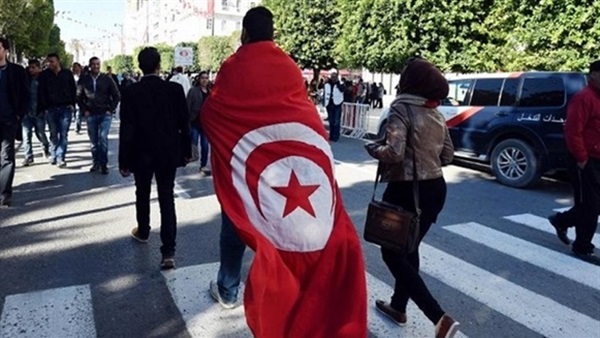In Tunisia, economic crisis threatens to sabotage polls

Tunisian authorities move ahead with preparations for the legislative elections which are slated for December 17.
However, the political and economic atmosphere surrounding these preparations is unfavourable by all means.
Tunisia experiences strikes and demonstrations due to its economic crisis that have affects all aspects of life in it.
The bakeries sector joined in the protests raging on in Tunisia.
The bakeries staged a strike on December 7 in protest against overdue financial payments that should have been paid by the government.
Nevertheless, the strike came to an end after the government convinced bakers to back down.
There is anger also in the pharmaceutical sector and among the suppliers of essential goods.
This comes against the background of the disappearance of some basic goods from shelves in shops around Tunisia.
Participation rates
Observers expect that this atmosphere to affect participation rates in the elections.
Tunisian writer, Nizar Jleidi, said the economic situation in Tunisia weighs on citizen and sways them away from the political process.
"Citizens only think about the provision of basic needs," he said in previous comments to The Reference.
"This means that thinking about politics is a luxury for many citizens," he added.
He said the lack of confidence in politicians and the possibility that things can get better in the future turn citizens away from political participation.
"People just believe that their participation will make no difference," Jleidi said.
Experiment
Turnout in the July 25 referendum can provide clues to what might happen in the future.
The voter turnout in this referendum did not exceed a third of eligible voters.
This was considered by the opponents of Tunisian President Kais Saied as evidence of popular rejection.
However, Saied's supporters see this turnout as logical in light of the economic conditions that occupy the thinking of Tunisian citizens.
Awareness
At the same time, Tunisian politicians, specifically supporters of the president, bet on the awareness of citizens.
This awareness, they say will help citizens escape the economic trap that keeps exhausting them.
These politicians, including the head of the High Electoral Commission, Fariq Bouaskar, who called on Tunisians to exercise their right to vote and go to the election stations.
Last July, coinciding with the first anniversary of the 2021 resolutions in which President Saied marginalized the Muslim Brotherhood's Ennahda movement, Tunisia held a referendum on a constitution that guaranteed the country presidential rule, following a decade in which it was subject to parliamentary rule.
With the election due on December 17, Tunisia has concluded the transitional period and all the organs and institutions of the New Republic have been formed.
Since 2011 and the so-called Arab Spring, Tunisia has been living in a confused atmosphere.
President Saied blames politicians and Ennahda movement for this confusion.





